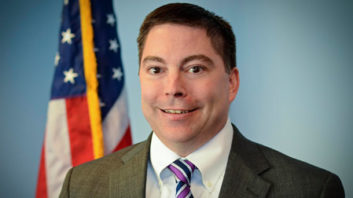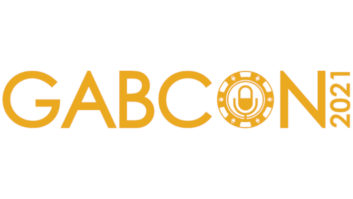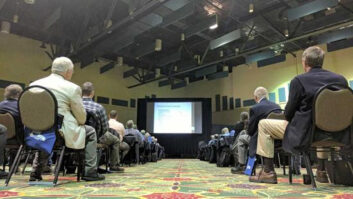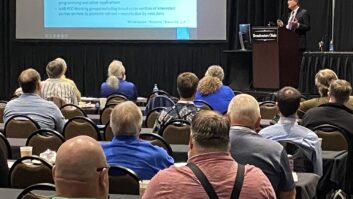 If comments by Commissioner Michael O’Rielly are any indication, the question of whether to modify radio’s subcap ownership rule is no longer much of a question at all, but rather a matter of how.
If comments by Commissioner Michael O’Rielly are any indication, the question of whether to modify radio’s subcap ownership rule is no longer much of a question at all, but rather a matter of how.
The Republican commissioner spoke to the NAB State Leadership Conference in Washington Tuesday and urged radio attendees to be active participants in debates over how best to reform radio ownership rules. “In all reality, these rules haven’t changed since Congress last addressed the issue in 1995,” he said, according to remarks released by his office. “But the radio marketplace sure looks and operates far differently than it did then. As leaders in the industry, you have some of the burden to educate regulators about how the market has evolved and about the real challenges you will face in the foreseeable future.”
O’Rielly noted that a central question is what to do with the existing subcap limits on common ownership of AM and FM stations in a market.
[Quadrennial Review Kicks Off More Deregulation Debates]
“At the initial stages, there seems to be agreement that eliminating the AM ownership limit is more than timely,” he said. “Although some may argue that certain AM radio stations have become the de facto news source once provided by local newspapers, that recognition is not a good argument against allowing for greater common ownership. On the contrary, allowing consolidation of AM stations may be a key way to preserve this function. Let’s not ignore what happened to the newspaper industry and the role the commission helped play in its demise by denying similar opportunities to grow and remain viable.”
[O’Rielly Looks at Subcap Question]
He noted a number of proposals to permit a relaxation on the number of FM radio stations owned in a market, and then said: “I am pleased to see that a large portion of the industry has moved past the issue of whether some cap relief is needed and towards just exactly what form it should take. Now that we are past the initial rhetoric, we can figure out how best to provide relief while preserving sufficient diversity of voices in markets.”
During his remarks, O’Rielly also discussed the commission’s quadrennial review (“The current media marketplace can no longer be defined solely by traditional media voices stovepiped into discrete categories, such as television and radio”) and C-Band reallocation (“I have made it one of my conditions for approving any reallocation that the proposal include full reimbursement and retuning for those broadcasters that currently use C-band satellite services … if you don’t get greedy or seek unfair enrichment for the reallocation, your concerns will have to be fully addressed”).
O’Rielly also managed to get in a dig about some current political rhetoric. Saying he’d decided to attend this conference instead of a wireless trade show in Barcelona, he remarked, “I made a decision early on, having missed this event too often, that, instead of talking wireless with the international community, I would spend my time with those who actually embrace American capitalism and values, those who rightfully reject the move to consider adopting the broken theology of socialism, and those who believe serving their local communities is the right thing to do and who don’t need government edicts to do so.”












